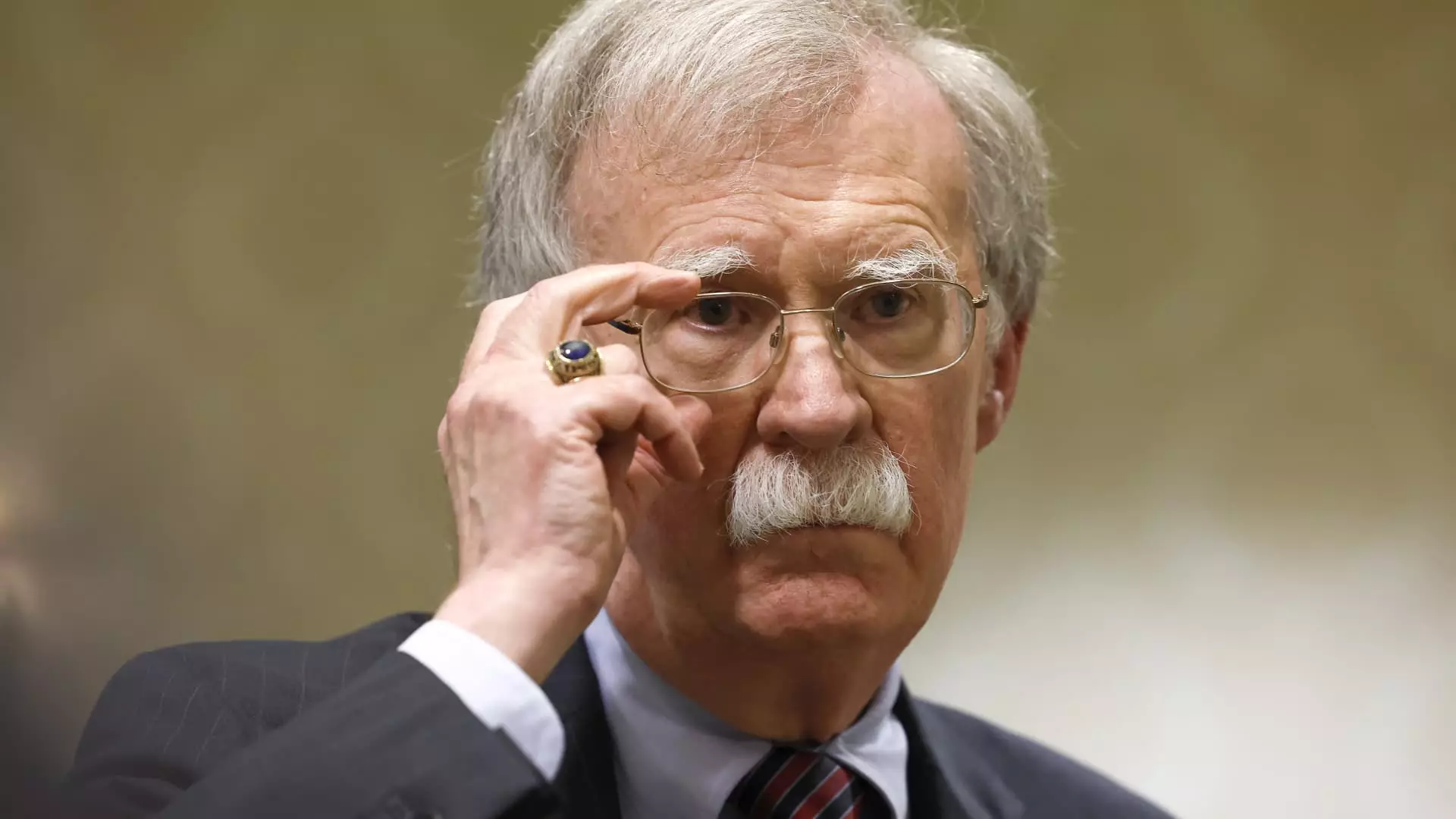In the realm of international trade, President Donald Trump’s approach can be described as both unorthodox and perilous. As he swings his metaphorical sword at countries like China, the collateral damage to America’s allies is alarming. It is as if Trump is operating on the premise that the more blunt the weapon, the more effective it may be—a strategy that is not just simplistic but also strategically misguided. Former national security advisor John Bolton’s critique reveals a chilling reality: Trump’s trade policy is not merely an economic miscalculation but an assertion that could have enduring negative consequences on global relations.
Bolton, while previously serving in a position that shaped U.S. foreign policy, has highlighted the importance of allies in confronting unfair trade practices perpetrated by nations such as China. His assertion that “you don’t slap them in the face publicly” resonates on multiple levels; it underscores the diplomatic intricacies necessary for a coherent trade policy. Instead of fostering unity among allies like Japan, South Korea, and various European countries who have equally felt the sting of China’s trade infractions, Trump has alienated them through thoughtless tariffs. By treating allies with contempt, he has granted China a tactical advantage, transforming an opportunity for collective action into a divisive conflict.
Eroding Trust and Stability
The fallout from Trump’s tariffs has been palpable; global markets reacted with chaotic tremors, erasing trillions in wealth in mere days. Such reckless policy moves don’t just impact financial metrics; they erode trust among nations that have relied on American leadership since the end of World War II. French Prime Minister François Bayrou’s remarks about a “hurricane” initiated by the U.S. highlight a critical point: trust, once shattered, is a difficult thing to rebuild. The credibility and reliability of the United States as a global leader appear to be rapidly disintegrating in the wake of these aggressive, unilateral measures.
The consequences of Trump’s tariffs extend beyond mere economic implications; they touch upon the very fabric of international diplomacy. When the United States chooses to act unilaterally, it risks creating a vacuum that other nations, specifically adversaries like China, are eager to fill. By positioning itself as an erratic player on the world stage, America not only undermines its own interests but also strengthens the resolve of rivals who are keen to build alliances in the absence of American leadership.
China’s Calculated Response
China’s reaction to American tariffs has been nothing less than strategic. The notion of Xi Jinping embarking on what could be viewed as a diplomatic overture across Southeast Asia speaks volumes about the shifting tides of global power dynamics. Bolton’s insights about Xi seeking to solidify alliances represent a chilling picture for the U.S. as it finds itself increasingly isolated. While Trump aims for a showdown, China is quietly building a coalition that could make the U.S. an outsider looking in.
The fact that the world’s two largest economies are engaged in a tit-for-tat tariff war shows the escalation of tensions and highlights the risk of long-term economic self-harm. The deteriorating relationships between allied nations and the impact on global supply chains are proof that trade wars often breed greater conflict rather than resolution. Trump’s decision to levy additional tariffs without a collaborative strategy appears not only illogical but fundamentally flawed.
Missing the Bigger Picture
Beyond the immediate economic fallout, this approach misses the bigger picture of global cooperation required to challenge unfair trade practices. The call for unity from indices like Bolton has merit; to wage a successful offensive against China’s unfair practices requires a coalition of like-minded countries. Rather than rallying allies to form a cohesive strategy focusing on shared concerns—intellectual property theft, state subsidies, or market manipulation—Trump has chosen to wage war against those who might stand beside the U.S. in confrontation.
This could lead to a crushing blow to U.S. influence, particularly since countries across the globe are witnessing the disarray emanating from Washington. With China positioning itself as a stable counterweight to American erraticism, the question is whether the U.S. can reclaim its role as a trusted partner on the global stage or if it will remain ensnared in self-inflicted turmoil.
The implications of Trump’s aggressive tariffs span far beyond immediate economic challenges; they encapsulate a broader narrative of isolationism and unwise engagement strategy that could redefine global geopolitics in the years to come. The stakes are higher than ever, requiring a recalibrated approach that considers the importance of alliances and collective strategy to address shared challenges effectively.


Leave a Reply